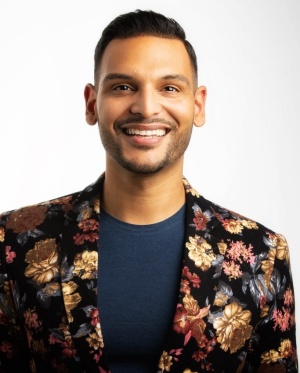Paying it forward: Supporting first-generation undocu/DACAmented students
A conversation with Stephen Santa-Ramirez
BY DANIELLE LEGARE
GSE assistant professor of higher education, Stephen Santa-Ramirez, experienced a light bulb moment while working as the assistant director for multicultural and LGBTQA+ affairs at the University of Texas at Arlington. As a first-generation college student—and as a result of his social justice and racial advocacy work—he realized he wanted to support students in a new way. He decided to pursue a PhD program, allowing him to investigate first-generation students’ experiences and the policies that adversely affect students of color in higher education.
Now, Santa-Ramirez is still motivated to advocate for first-generation students and provide guidance for faculty and staff: “For me, it’s important to pay it forward to others navigating the same journey. I hope to alleviate some of those pressures from them—because I already went through it.”
Stephen Santa-Ramirez is an assistant professor in the Department of Educational Leadership and Policy. His experiences in higher education and student affairs include work in multicultural and LGBTQA+ affairs, residential life and housing services, and migrant student services. In addition to teaching at GSE, he has taught at colleges and universities throughout the U.S.





















